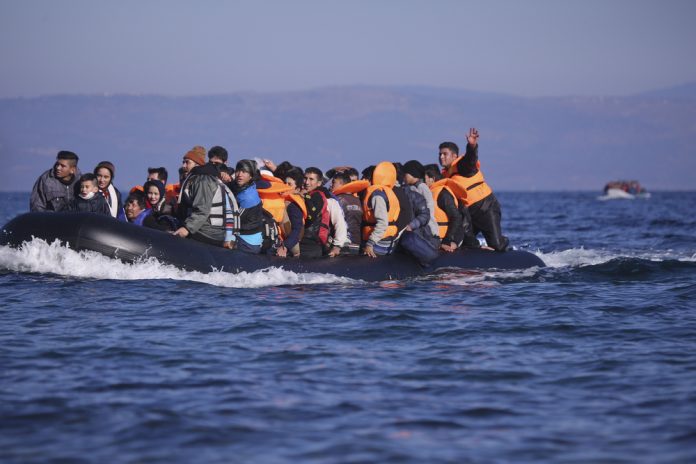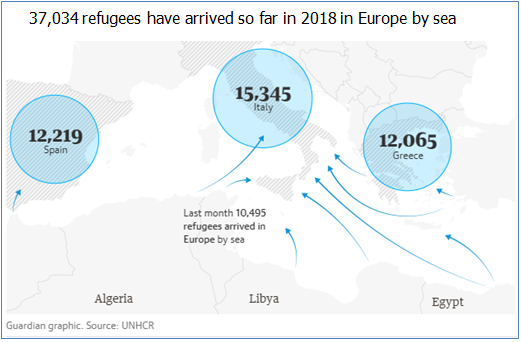
Migration is currently a hot topic in Europe. The issue persists due to factors like rapidly ageing population, refugee crisis and growing anti-immigration political rhetoric. People are migrating to Europe in order to seek asylum due to wars, limited economic opportunities and political instability in the Middle East. The European Union has been facing this social and political problem of increasing migration crisis since 2014. Over a million migrants arrived in the EU in 2015 and 2016, necessitating an urgent solution to the problem. Thus, EU is in a dilemma, as it just does not have enough resources to handle this social and economic phenomenon.
What is the scale of migration?
The UNHCR says Spain has welcomed 9,500 irregular migrants so far this year, Greece 12,000 and Italy 15,300. There are some underlying factors that have led to the migration of over 1.8 million migrants since 2014 and still have not gone away.
Why is it a problem?
Wars, economic and political instability has made Europe a safe haven. But the increasing numbers of asylum seekers can have a huge impact on the economy of Europe. First, the social spending of the host country increases as they must house and educate refugees. Second, the country usually lags in economic growth and politicians find that difficult to digest. Moreover, migrants also alter the economy’s labor market. They compete with local labor for a job and sometimes replace the existing citizens due to their willingness to work at below market wages.
Socio-economic situation of migrants in the EU
The European Agenda for the Integration of Third-Country Nationals summarizes the challenges with respect to increasing migration crisis in Europe.
- · Economy is finding it difficult to fill the gap in educational achievement;
- · Employment level of migrants is still low;
- · Poverty rate of immigrant household is considerably higher than among host country native household;
- · The government has earmarked €21.3 billion for migrants in 2017;
- · A wave of Xenophobia has been created due to current refugee crisis;
- · Increasing numbers of migrants have put a strain on country’s resources and created a political backlash which can be currently seen in Europe.
Financial Markets
Financial markets have currently been relatively mute to the unfolding crisis. But there are multiple socio-economic and political factors playing out in individual countries. Consider the rise of extreme right in many European countries. The anti-immigrant stance has also led to an anti EU positioning. Though no one has seriously considered another Brexit type situation, one terrorist attack and the issue can suddenly spiral into a crisis. This along with major spending on rehabilitating migrants and other direct/indirect expenditure could curtail overall GDP growth of the economies especially in the short term.
Conclusion
The European Union has agreed on a range of measures to deal with this increasing crisis. The numbers came down from 2015-16 because of an EU deal with Turkey, new border fences in the Balkans, and a bilateral arrangement between Italy and Libya. They are also trying to solve the root cause of the crisis as well as providing aid to these refugees both inside and outside the European Union. The phenomenon’s long-term effects currently seem too hazy to predict.















Thanks for the piece of news currently happening in Europe